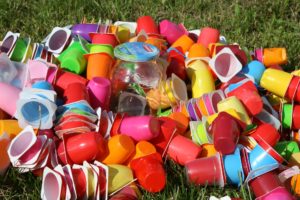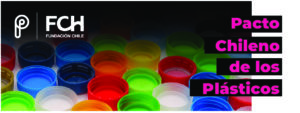Major Goals Set to be Met by 2025
The plastic pollution problem is a global issue that transcends countries, governments, industries, neighborhoods and levels of development. Currently most of everyone’s focus goes to changing consumer behavior and policy change, but companies have their share of responsibilities as well. There is so much they can do to reduce, reuse, innovate, communicate and in general make an effort to avoid single-use plastics to also make sure plastic doesn’t end up in our environment.

Up until now only a few companies have made a first, though limited, attempt to do something about it. They have banned straws in big fast food chains. They have designed plastic bottles with less plastic. We have seen campaigns that promote returnable bottles, recycling campaigns, beach cleanups and a lot of “green” advertising, but most of them have been isolated solutions around the world.
UK Plastics Pact
Then came 2018, when the UK Plastics Pact was launched; a unique public/private initiative (mainly from the food and drink industry) to reduce the overall use of plastics in their products, reduce waste, innovate and move towards a circular use of plastics. The initiative was lead by the Ellen MacArthur Foundation and executed by WRAP.
The 50 UK companies who initially signed the pact represented about 80% of all plastic packaging in UK supermarkets. The voluntary goals to reach by 2025 area:
– All their packaging is recyclable, reusable or compostable.
– Have an average of 30% recycled content across all plastic packaging.
– 70% of their packaging effectively recycled
– Eliminate unnecessary single-use plastic packaging through redesign, innovation or alternative delivery models.

Launch of Plastics Pact Chile- Ellen MacArthur and Fundación Chile
The Pact gained traction and it was also launched in France in February 2019, and the Dutch government signed a similar pact with industry but on their own in 2019. And now it’s Chile’s turn, a South American first, and our Plastic Oceans Chile team has been invited to take a seat on the board of directors and lead this initiative.
The other members are Fundación Chile, the Ministry of Environment, CORFO, the Ministry of Economy, the Agency for Sustainability and Climate Change, the Association of Municipalities for Environmental Sustainability (AMUSA). The Pact is supported (but not lead) by the following founding companies: Unilever, Coca Cola, Nestlé, Soprole, Mall Plaza and Resiter.
Why is Plastic Oceans involved?
Our vision is to end Plastic Pollution, and for that we need to change the global attitude toward plastic within one generation. That means consumers and governments, but also the companies who make those products! We want to make sure that this pact will not turn into just a recycling pact, so we will put much more attention to reduction, innovation and circularity because although recycling is important, it will not solve our plastic problem and will definitely not avoid plastic leaching into our environment. This will require collaboration and firm action from all, and also trust from consumers that this is an authentic attempt of the companies involved to better their businesses and reduce their environmental impact. We applaud this public/private initiative and will do our very best to make sure that the goals set for this Plastic Pact Chile (estimated to be ready in June this year) will be ambitious and also will be checked regularly to make sure that targets are met.
We’ll keep you posted about the progress our team makes!
More info on the UK Plastics Pact: http://www.wrap.org.uk/content/the-uk-plastics-pact
###
